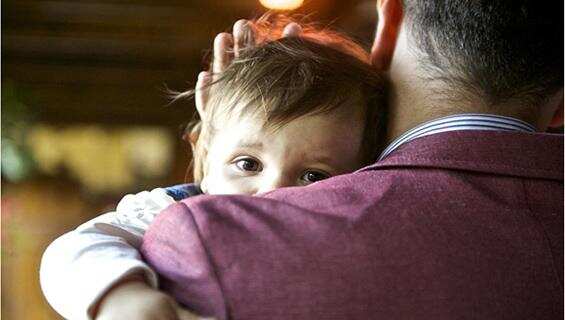Essential tips for New Dads

For new dads it’s no more just about mowing lawn, as with a birth of child comes a lot of responsibility. So from biological changes, changes in brain, postpartum depression to learning to bond, a new father goes through a lot. While it may be totally new for the dad’s to change diapers, it is indeed a great opportunity to strengthen marriage too. Even though it may be a tad baffling at the start, a few essential tips for the new dads will help them going with the new baby.
Bonding is Crucial
Bonding with a father is equally important for a child as with a mother, say psychologists. According to researchers at the University of Connecticut, a father’s body reciprocates to parenthood equally as a mother. Their parenting style influence the kids uniformly, perhaps even more than a mother’s.
Director of Center for the Study of Interpersonal Acceptance and Rejection at the University of Connecticut, Ronald Rohner says “We’re now finding that not only are fathers influential, sometimes they have more influence on kids’ development than moms,”. Hence there is a lot that new dad needs to learn to have positive effect on their new born right from the start.
Be an Integral Part
Researchers at the Uppsala University discovered the gravity of a father’s involvement in a child’s life with an experiment performed on 24 father and child duo. Comparatively fewer behavioral issues were noticed among kids, whose dad spent some time with them playing, caring for them, read books or went for an outing.
The study pointed out that children born prematurely displayed higher IQ at the age of three who had fathers engaged in activities with them compared to those who don’t. Therefore, play with your child, involve in tickling, chasing your little one, to teaching the grown up to ride roller coasters or a bicycle and be an integral part of your child’s life.
Emotional Changes
A recent study shows that fatherhood changes the male brains to the extent that they feel those emotions with the birth of their child which they did not feel for any other child till date. According to head of the Family and Child Neuroscience Lab at the University of Denver, Pilyoung Kim “In studying fathers with their new babies, we found out that a man’s brain actually does change—it gets rewired to support the evolutionary role of becoming a parent,”. Her theory was released Social Neuroscience journal named Neural Plasticity in Fathers of Human Infants in 2014.
It said “The brain regions involved in parenting, providing warmth and care of an infant, showed anatomical growth in men from the first month postpartum.” Kim pointed out some of the changes in men post parenthood which included loving touch, presence or that affectionate look. Therefore newbie dads are advised to relax, as with the birth of a child their heart automatically tends to grow fonder.
Treat a Baby like a ‘Baby’
Babies need that special way of conversation that makes them feel secured and being cared for. A Washington State University study suggests that fathers are not so good at talking to toddlers the way mothers do. They rather talk to their kids treating them as just another adult to make them comfortable with the outside world.
A speech scientist at Washington State University, Mark VanDam says “Dads talk to kids like they talk to adults.” While it is the way men show their affection to their kids, new dads can sure learn some cooing to give their child that additional comfort.
Deal with Postpartum Depression
While 14 percent of new mothers go through postpartum depression, a few recent studies suggest a similar condition affecting 10 percent of even the new dads, named paternal postnatal depression. There are quite a few symptoms listed by the PostpartumMen.com which includes raised increased outrage, alcohol or drug consumption, high levels of stress, physical discomfort like digestion issues, headache and more.
Based on a study conducted by professor of psychology at the University of Oxford, Paul Ramchandani, and published in the Lancet this condition has a long term effect on children. Therefore, new dads are expected to be aware of the situation and learn to handle it accordingly.
Watch that Drop in your Testosterone levels
Michigan University Scientists performed a test on 29 couples expecting their first child which came up with results showing a drop in the testosterone levels of the men. This denoted that a new dad’s testosterone levels could actually reduce post the birth of his first baby. Though the reason for this is still unknown, but according to the researcher Robin Edelstein, expectation of being a father could be the prime reason.
Hence, new fathers are suggested to be mentally prepared in order to avoid any discomfort to the new born with this change.
References –
http://family-studies.org/do-fathers-matter-answers-from-the-new-science-of-fatherhood/
http://www.livescience.com/20997-science-fatherhood-fathers-day.html
http://news.nationalpost.com/arts/better-off-dad-the-biological-changes-of-fatherhood
https://www.sciencenews.org/blog/growth-curve/unlike-moms-dads-tend-not-coo-squeaky-voices
http://www.pregnancyweekly.com/dads/ppnd.htm
.jpg)